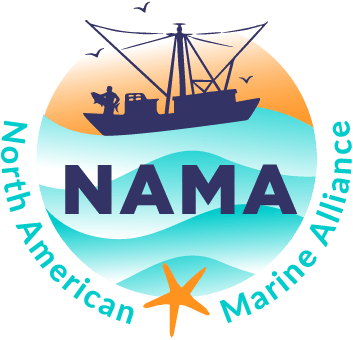COMMONS SENSE
By Niaz Dorry,
NAMA’s Coordinating Director
What are the Commons? I hear that word more often these days in all sort of places. In the fisheries world, almost all management strategies discussed over the past few decades that have resulted in privatization, industrialization, marginalization, and consolidation of the fish and the fishermen seem to only rationalize how some have defined Garrett Hardin’s message in The Tragedy of the Commons.
Personally, I never gave much thought to the word “commons” till I started working on fisheries issues in 1994 and heard it defined as an evil that needed to be exorcised through privatization schemes. I’ve done some growing up since then and have come to learn a lot more about this word “commons.” You can read more about my perspective on the commons next week when On the Commons (OTC) will run an interview with me in their magazine. OTC works on protecting and reclaiming our commons – from water, land, seeds, food, art, you name it. I encourage you to check ’em out.
In the meanwhile, I invite you to read Brett’s piece on how fleet diversity will help us gain some commons ground, and Boyce’s piece about what it all means to other regions as well as the upcoming reauthorization of the Magnuson Stevens Fisheries Conservation and Management Act.
Happy Holidays.
Niaz Dorry, NAMA’s Coordinating Director
A18 POLICY TO PROTECT FAMILY FISHERS IS MAKING WAVES
By Brett Tolley,
NAMA’s Community Organizer
In late November New England fisheries policy makers voted to make the Fleet Diversity Amendment (A18) a top priority for 2013. Letters, testimonies, and petition signatures poured in to help make this possible. A huge thanks for all the support!
Why is A18 so important? In 2010 New England began a Catch Share policy program that was designed without proper safeguards in place. The rationalization has been to address the tragedy of the commons by allowing anyone to own the rights to fish today and in the future. As a result, we’re seeing the displacement of family fishers, loss of rural community infrastructure, and a concentrated fishing pressure from larger boats around key inshore areas affecting those fish populations. A18 is the opportunity to fix what is not working.
A18 and community safeguards are not just important for New England fisheries. Catch Share programs are now being promoted internationally and without safeguards in place these programs will continue to displace family fishers and hand over fishing access and rights to the big box boat industry. Support for community
safeguards and A18 can counter this direction and steer us toward communities taking back control over their own food system and stewardship over the common resource.
It’s crucial to keep the pressure on. The fisheries Council will meet again in January, and they need to hear that these safeguards matter. Safeguards matter to save the fish, they matter to save fishermen, and they matter to save our coastal communities.
If you haven’t already, please sign the petition started by fisherman Ron Borjeson. Also please visit our ‘Who Fishes Matters’ campaign page to hear testimonies from working fishermen and learn more about fleet consolidation. Plus, keep your eyes out for upcoming action opportunities!
A18 AND THE MSA
By Boyce Thorne Miller,
NAMA’s Science Coordinator
As we rapidly approach 2013, the year the Magnuson Stevens Act (MSA) comes up for reauthorization, the concepts and alternatives we have been developing for A18 will offer much fodder for improving MSA. Ironically, MSA reauthorization could happen within a shorter timeframe that A18, thus emphasizing the snail’s pace at which the Council processes often move, usually due to political pressure from those who have something to lose because of the decisions at hand.
The final decisions on A18 will certainly not be available to Congress as they deliberate initial proposals for amending the MSA. Watching the pace of A18 makes one wonder if National Standard 6—the need for adaptive flexibility in fisheries management—has ever been a real consideration.
Nevertheless, the very need for A18 to place important safeguards on Catch Share management and the recognition by the NOAA regional administrator that this amendment to protect fleet diversity recognizes problems critical not only to New England groundfish but also to other fisheries management, make it highly relevant to MSA reauthorization. Community-based fishermen around the country are looking at this effort in New England as a portent of hope that their own regions may correct or avoid consolidation-driving management measures that threaten their very existence as well as our ocean commons—as in the Pacific region where smaller fishing operations are gravely threatened by new management plans with little benefit to the actual fish populations. New England’s work on A18 is vital.
MSA 2006 requires the “protection of traditional fishing communities” (National Standard 8), and that is exactly what A18 goes to. Maintaining fleet diversity is a means of maintaining traditional fishing communities, managing fisheries truly for the greater benefit of the nation (National Standard 1) and a means of maintaining biological diversity in the fishery ecosystems (National Standard 3).

